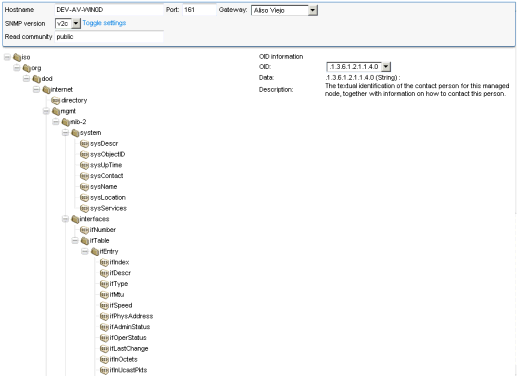Each SNMP-enabled asset responds only to a specific set of SNMP requests. Each SNMP request is uniquely identified by an object ID, or OID. For example, an OID called ifInOctets is represented by the numerical-based OID .1.3.6.1.2.1.2.2.1.10. The corresponding character-based OID for ifInOctets is .iso.org.dod.internet.mgmt.mib-2.interfaces.ifTable.ifEntry.ifInOctets.
Each device manufacturer publishes the OIDs supported by the SNMP-enabled devices they manufacturer in the form of a MIB file, so OIDs are usually called MIB objects. The MIB files can be imported into a "MIB aware" application, such as Network Monitor. The Network Monitor comes pre-installed with many popular sets of MIB objects, so compiling custom MIB files is usually only required for devices with specialized MIB objects.
MIB Tree
Manufacturers have attempted to standardize the identification of MIB objects they use in devices by organizing them into a MIB Tree. Routers, for example, may use many of the same MIB objects, and only have few a specialized MIB objects that differ to support their particular product.
Network Monitor displays the MIB tree in a MIB browser. The MIB browser can be displayed using any of the following methods of access:
The same tree displays at all times, based on the MIB files installed on the server. Below is an example of the MIB browser dialog.
